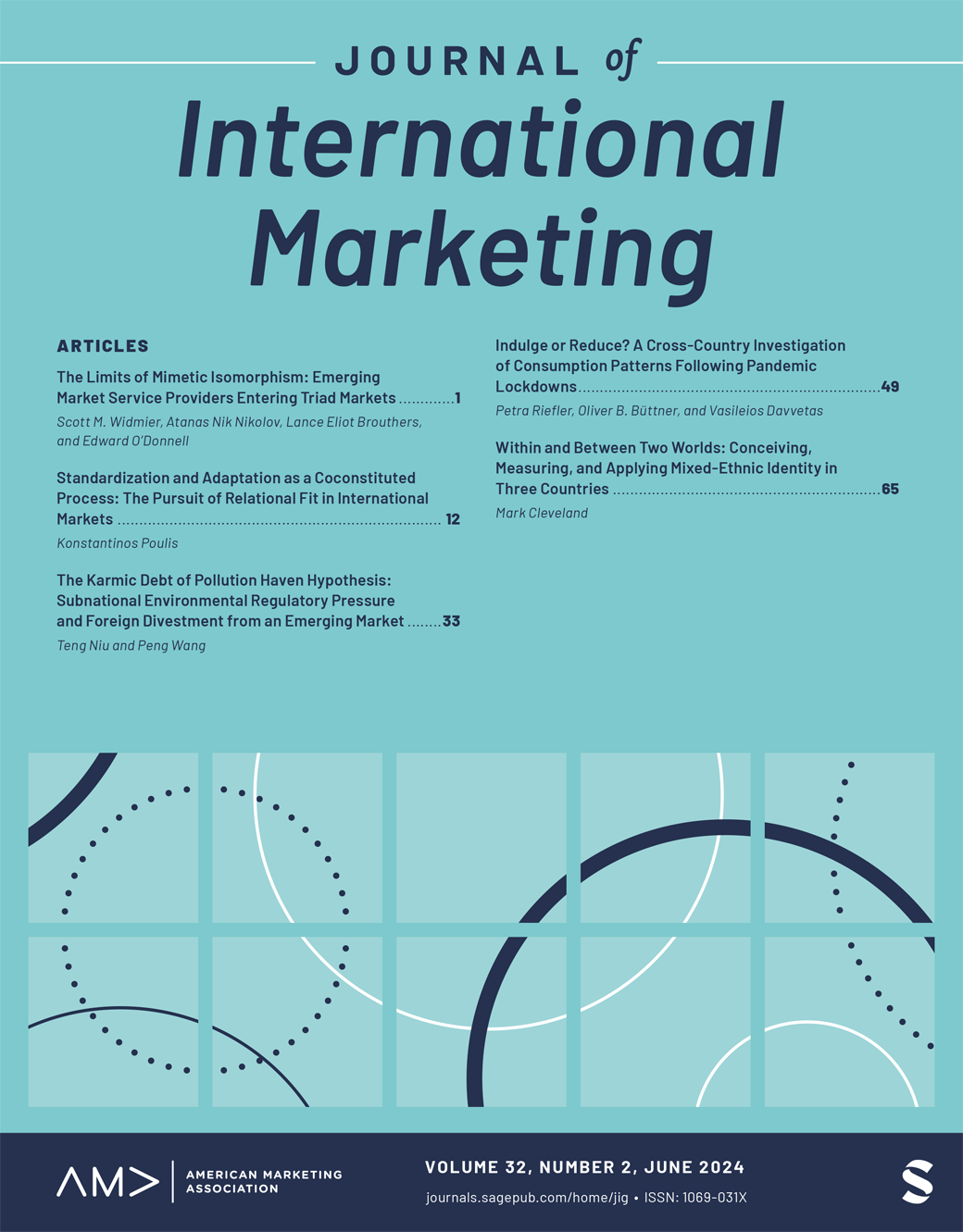国际广告标准化视野下的幸福承诺:宗教性与宗教启动效应遮蔽跨文化因素
IF 4.2
2区 管理学
Q1 BUSINESS
引用次数: 0
摘要
明确宣称所宣传的产品能给消费者的生活带来幸福的广告活动,在全国市场上往往是标准化的。虽然大多数人都想要快乐,并且可能会对快乐的号召做出积极的反应,这似乎是直觉,但文献几乎没有证据支持这种常见的管理实践。通过在阿联酋和美国两种不同的文化环境中进行的两项研究,本研究表明,跨文化因素的影响程度分别低于宗教信仰和宗教启动等个人因素和情境因素。具体来说,作者发现较低(较高)的宗教信仰水平导致基于幸福(相对于控制)的主张的评分较差(较高)。此外,暴露在宗教暗示下,会改变人们对品牌对广告主张的掌控程度的看法,从而改变宗教虔诚程度与对以幸福为主题的广告的喜爱程度之间的关系。本研究揭示了宗教虔诚度和宗教启动对消费者对标准化世俗广告反应的互动作用。本文章由计算机程序翻译,如有差异,请以英文原文为准。
Promising Happiness in Light of International Advertising Standardization: Religiosity and Religious Priming Overshadow Cross-Cultural Factors
Advertising campaigns that explicitly claim that the advertised product can bring happiness to the consumer's life are often standardized across national markets. While it seems intuitive that most people want to be happy and might respond favorably to calls for happiness, the literature offers little to no evidence to support this common managerial practice. Through two studies conducted in cultural settings as different as the United Arab Emirates and the United States, this research shows that cross-cultural factors matter less than personal and situational factors such as religiosity and religious priming, respectively. Specifically, the author found that lower (higher) religiosity levels led to worse (better) ratings for happiness-based (vs. control) claims. Moreover, exposure to religious cues flipped the relationship between higher religiosity levels and liking for ads featuring happiness-based claims because of altered perceptions of the brand's control over the claim. This research sheds light on the interactive role of religiosity and religious priming on consumer response to standardized secular advertising.
求助全文
通过发布文献求助,成功后即可免费获取论文全文。
去求助
来源期刊

Journal of International Marketing
BUSINESS-
CiteScore
8.70
自引率
17.20%
发文量
28
期刊介绍:
As the globalization of markets continues at a rapid pace, business practitioners and educators alike face the challenge of staying current with the developments. Marketing managers require a source of new information and insights on international business events. International marketing educators require a forum for disseminating their thoughts and research findings. Journal of International Marketing(JIM) is an international, peer-reviewed journal dedicated to advancing international marketing practice, research, and theory. Contributions addressing any aspect of international marketing management are published each quarter.
 求助内容:
求助内容: 应助结果提醒方式:
应助结果提醒方式:


